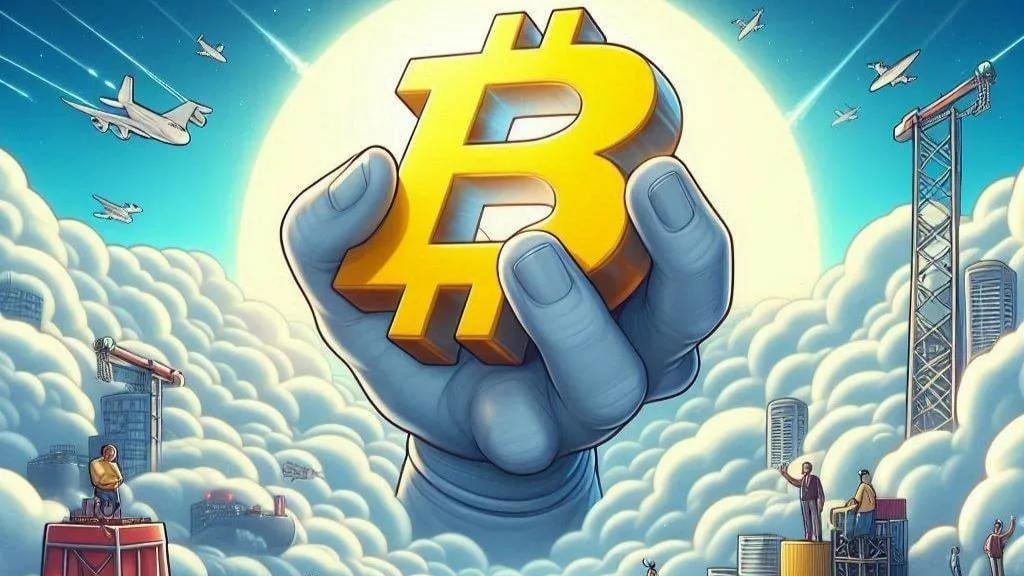
Prominent economist and long-time Bitcoin critic Peter Schiff has once again raised concerns about the cryptocurrency’s impact on the US dollar. Schiff, known for his outspoken skepticism of Bitcoin, argues that the adoption and accumulation of Bitcoin by governments could destabilize the dollar and disrupt global financial stability.
His criticism extends to former President Donald Trump’s controversial proposal to establish a national Bitcoin reserve, a move Schiff believes would undermine trust in the US dollar and challenge its dominance as the world’s reserve currency.
Schiff has often described Bitcoin as a speculative bubble, warning that its integration into government monetary systems could exacerbate economic vulnerabilities. He believes that if the US government were to embrace Bitcoin while continuing to print trillions of dollars, it would create a dangerous economic bubble.
In his own words, Schiff stated, “Bitcoin may indeed lead to the demise of the dollar. If the US government adopts Bitcoin and prints trillions of dollars, it could create a larger bubble that squanders the nation’s wealth.”
This scenario, Schiff argues, could weaken investor confidence and reduce the demand for the dollar, undermining its status in global trade. For Schiff, Bitcoin represents not just a risky asset but a potential destabilizer for the US economy.
Adding fuel to the debate is Donald Trump’s proposed plan to establish a national Bitcoin reserve. According to reports, the former president suggested that the government could purchase up to 1 million Bitcoin (BTC) over several years to strengthen national reserves.
Schiff, however, has fiercely criticized this idea. He warned that such significant government involvement in the Bitcoin market could erode global confidence in the dollar.
“Bitcoin can achieve what cannot be done in a free market through government support. However, this will destroy global confidence in the dollar,” Schiff remarked.
He added that large-scale Bitcoin purchases by the government could:
Schiff believes this plan would exacerbate concerns about the sustainability of US fiscal and monetary policies.
Contrary to Schiff’s dire warnings, Federal Reserve Chairman Jerome Powell has taken a more measured stance on Bitcoin. Powell recently noted that Bitcoin does not pose a direct threat to the dollar but can be viewed as an inflation hedge, much like gold.
This statement reflects the growing perception of Bitcoin as an alternative asset rather than a direct competitor to traditional fiat currencies. However, Powell’s comments have also fueled interest in Bitcoin as a long-term investment, potentially reinforcing its attractiveness among both institutional and retail investors.
Peter Schiff’s concerns underscore the growing tension between traditional financial systems and the rise of cryptocurrencies. While his warnings highlight potential risks, advocates of Bitcoin argue that it represents a decentralized, inflation-resistant alternative to fiat currencies.
The debate around Trump’s Bitcoin reserve plan further emphasizes the divide. While some view it as a visionary move to strengthen national financial resilience, critics like Schiff see it as a threat to the dollar’s stability and global dominance.
For now, Bitcoin remains a polarizing asset, with its role in global finance still evolving. Whether it becomes a catalyst for innovation or a disruptor of established systems will largely depend on how governments, institutions, and markets choose to engage with it.
Peter Schiff’s warnings about Bitcoin’s potential to destabilize the US dollar add a critical perspective to the ongoing debate over cryptocurrency adoption. As the global financial landscape continues to shift, the tug-of-war between traditional economic systems and decentralized digital assets like Bitcoin will likely intensify.
The next few years will reveal whether Bitcoin emerges as a complement to or a competitor of the US dollar—and how governments like the US choose to navigate this transformative period.



Get the latest Crypto & Blockchain News in your inbox.